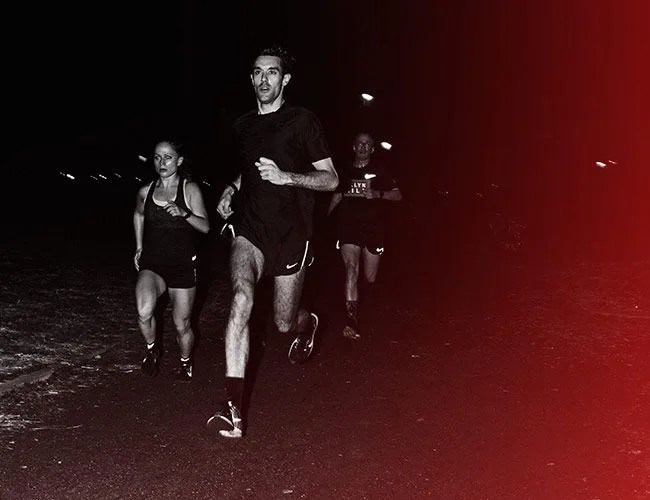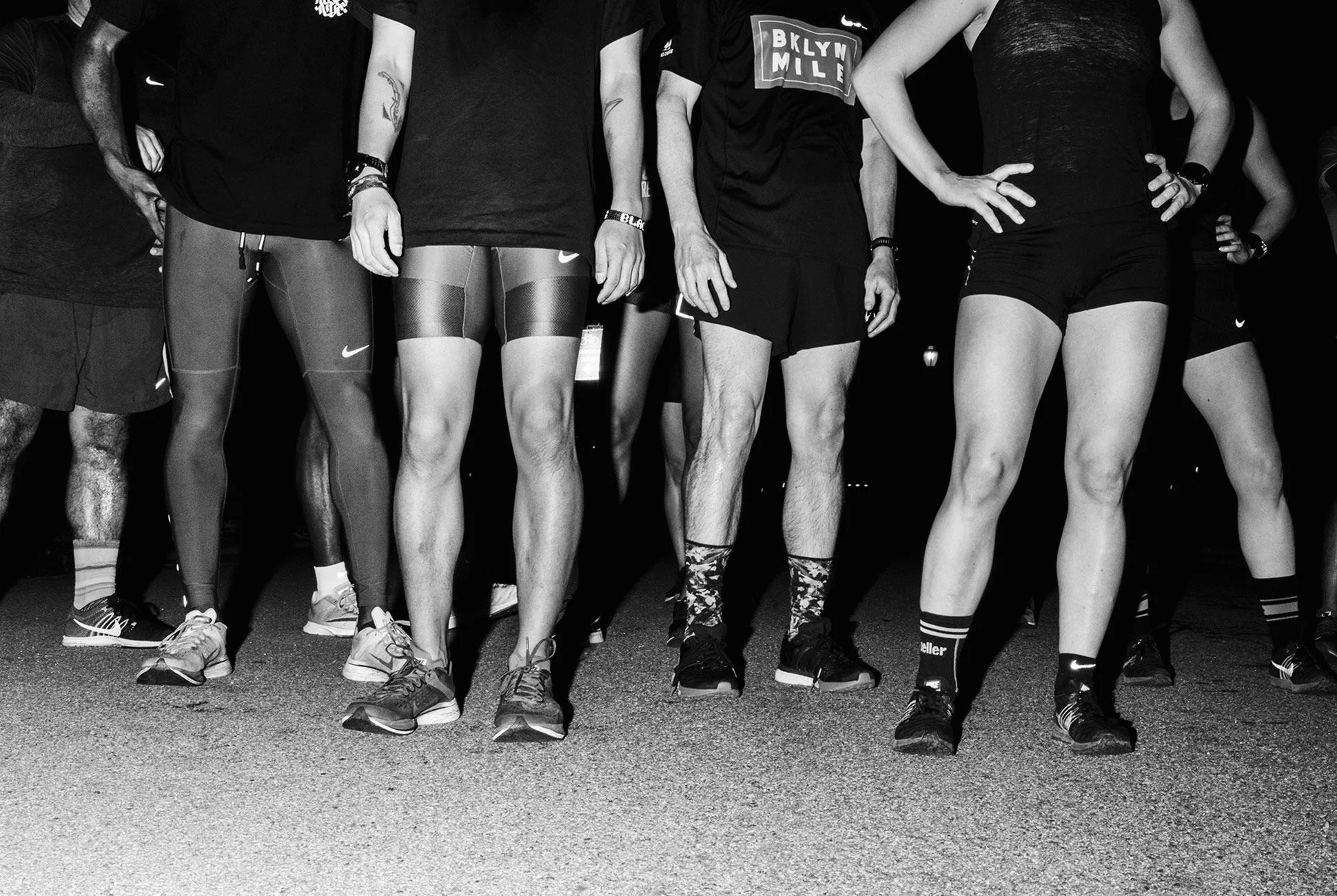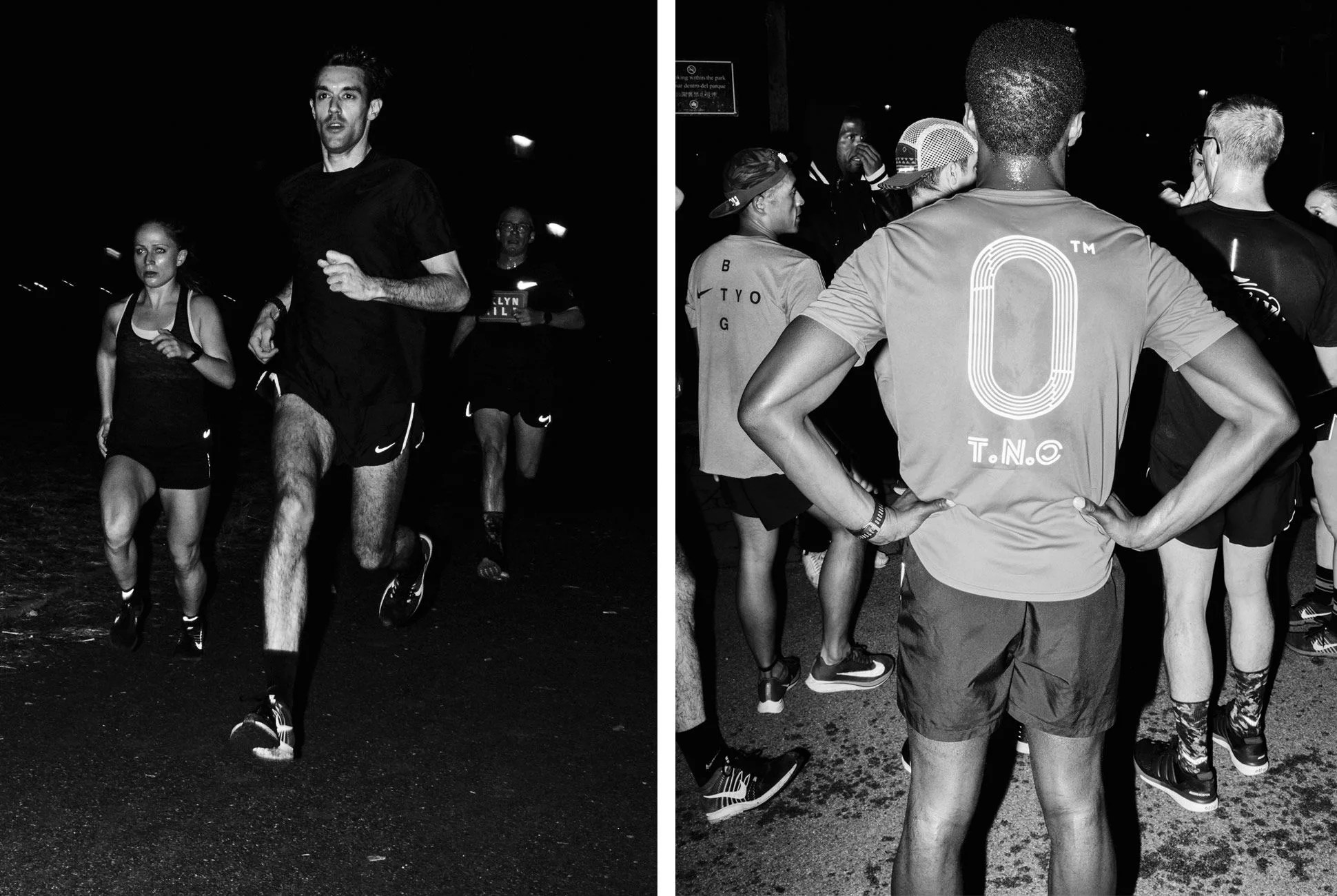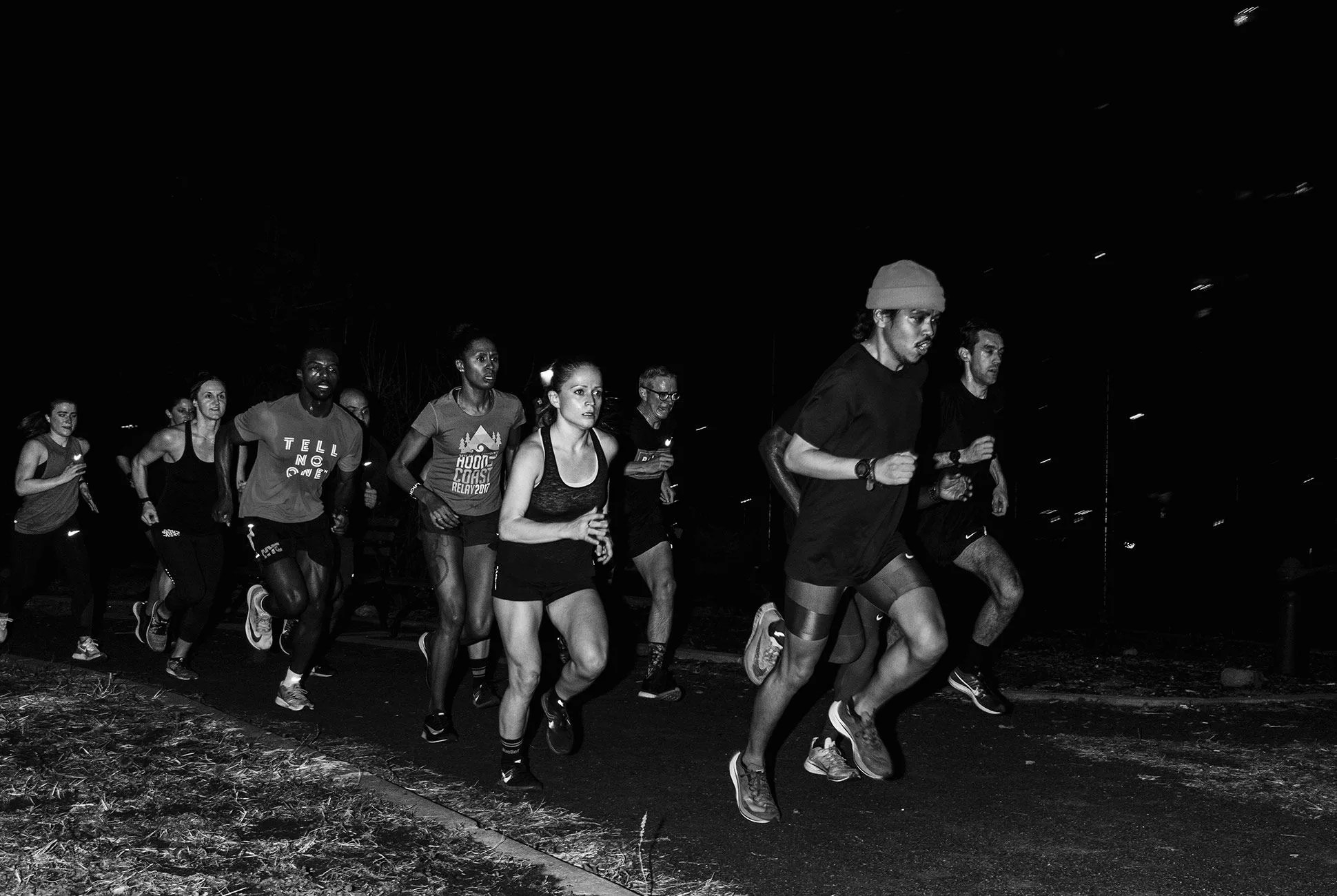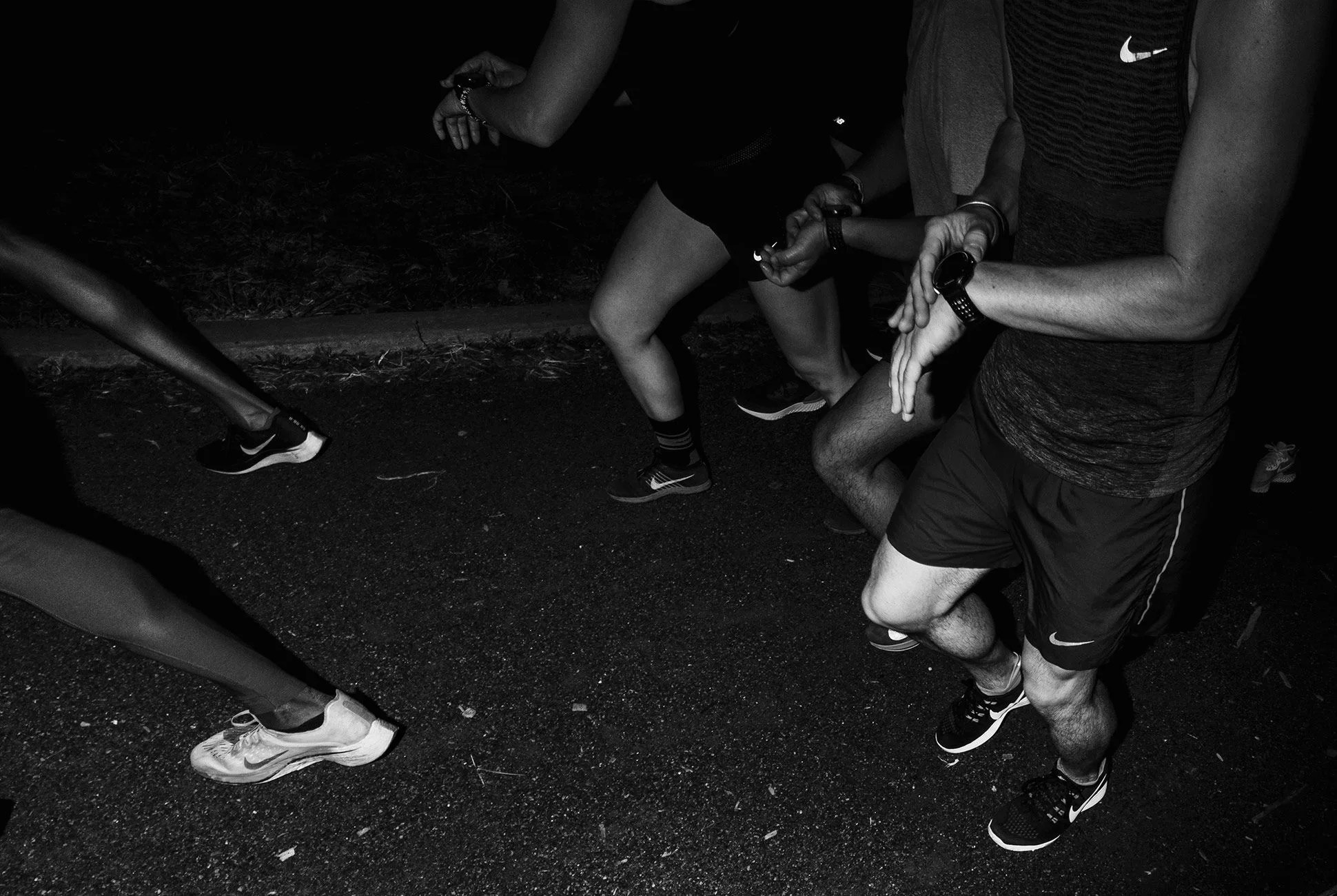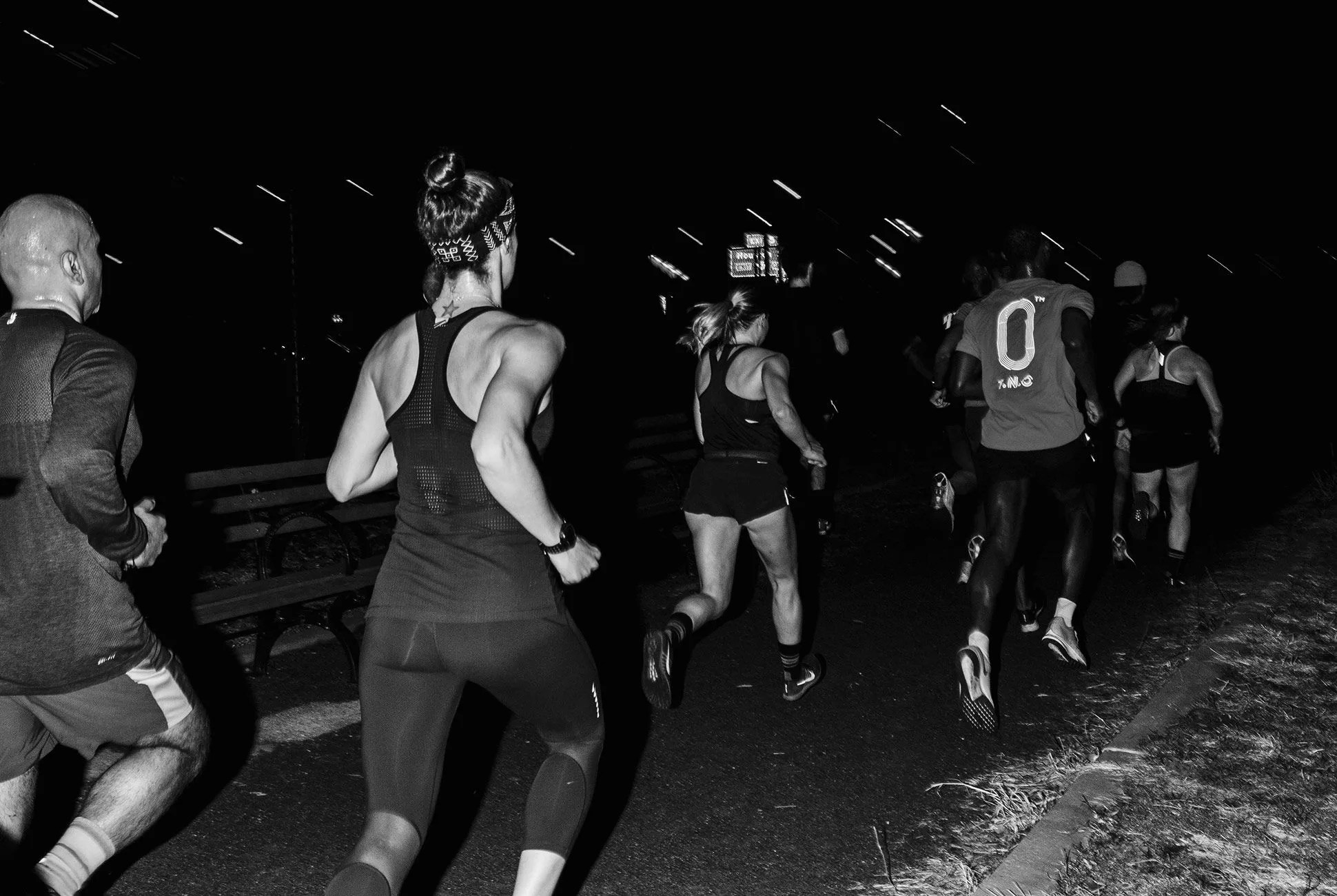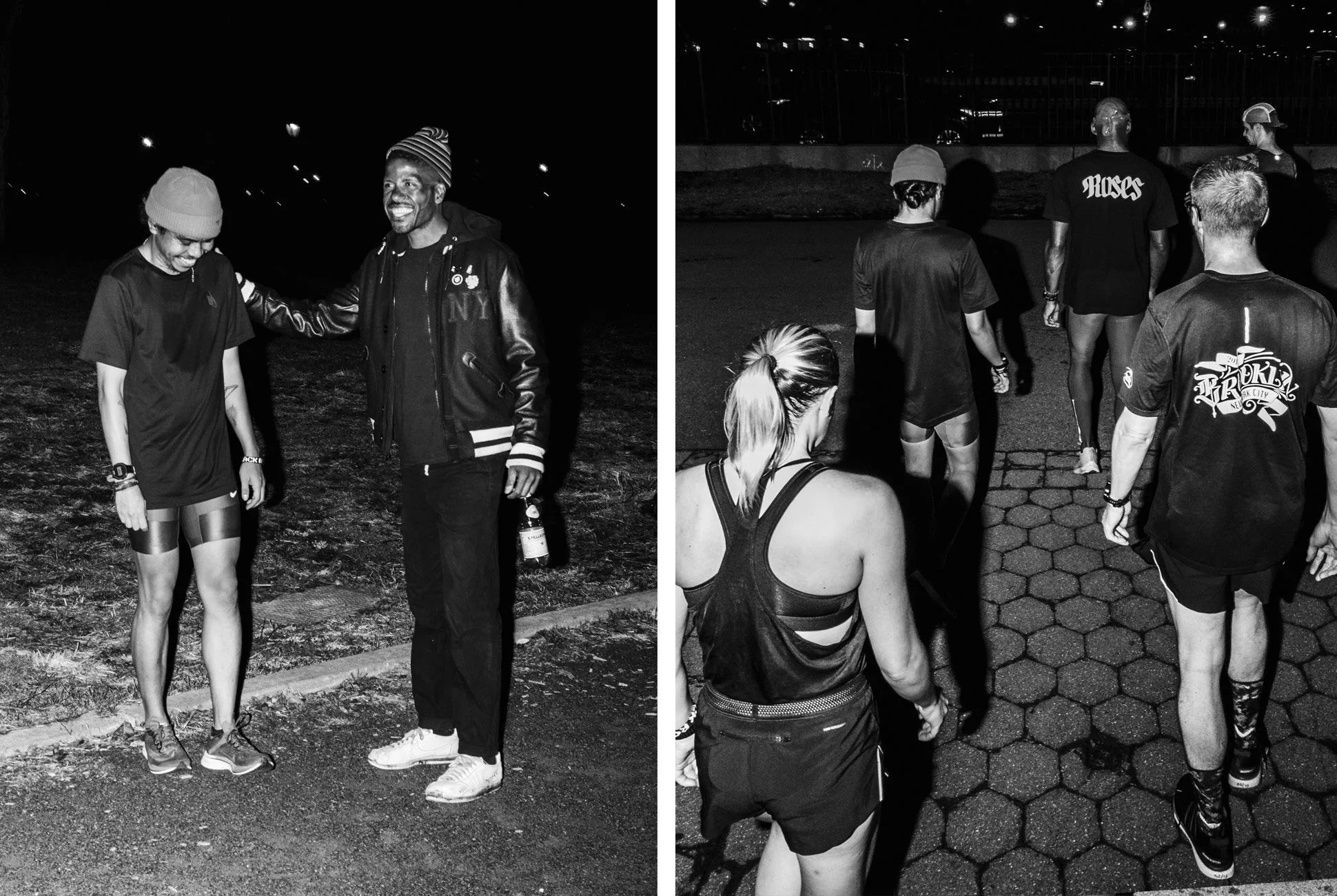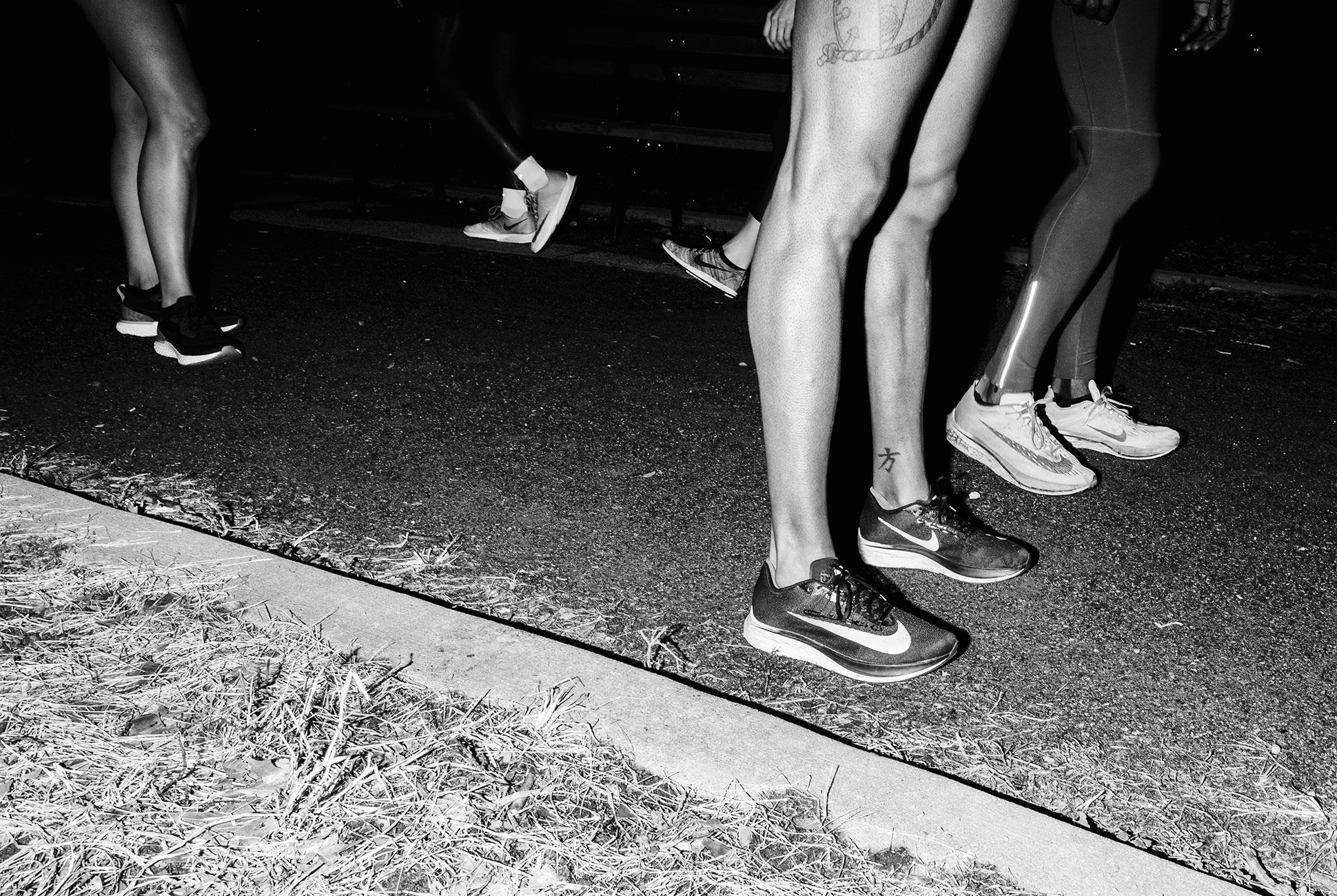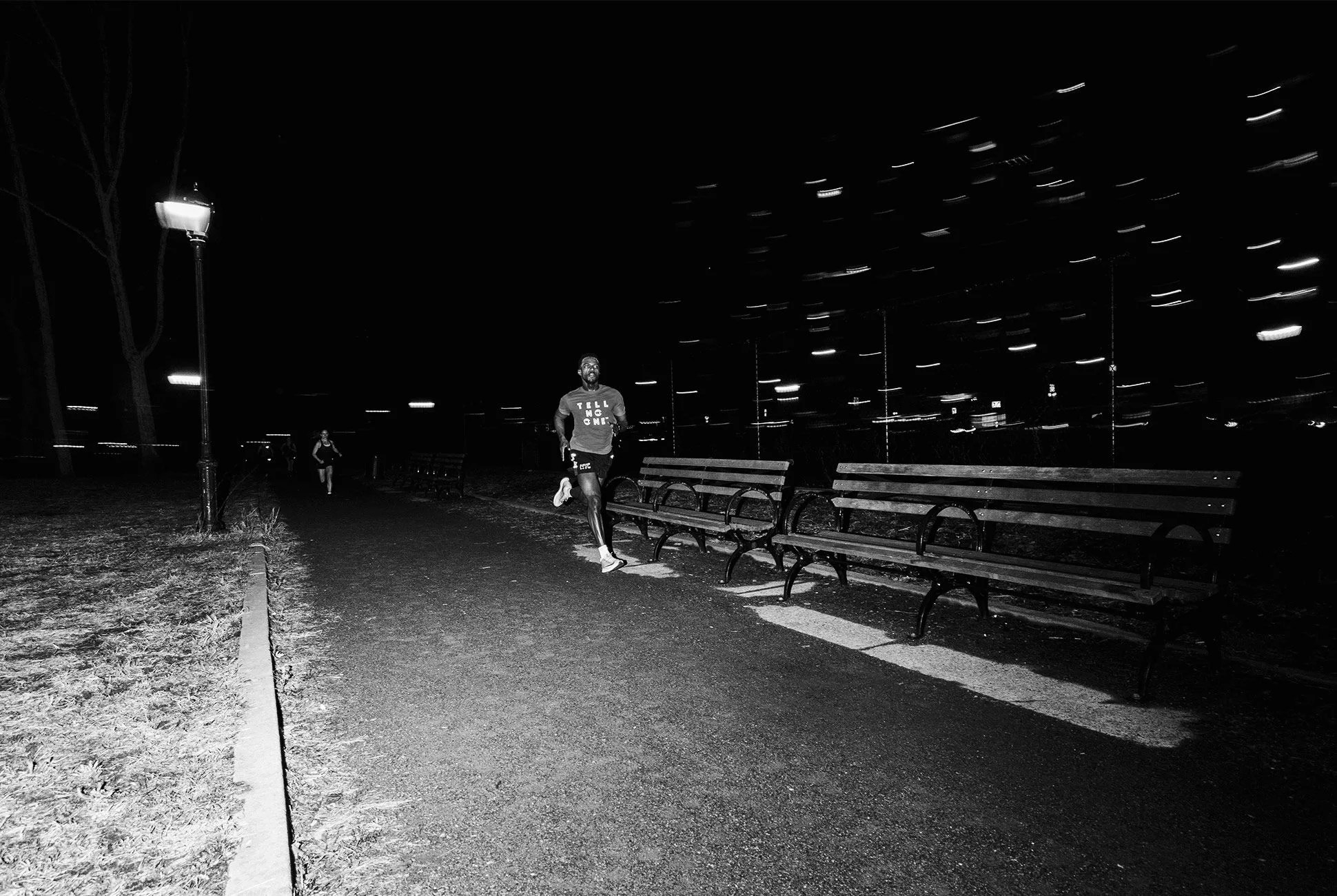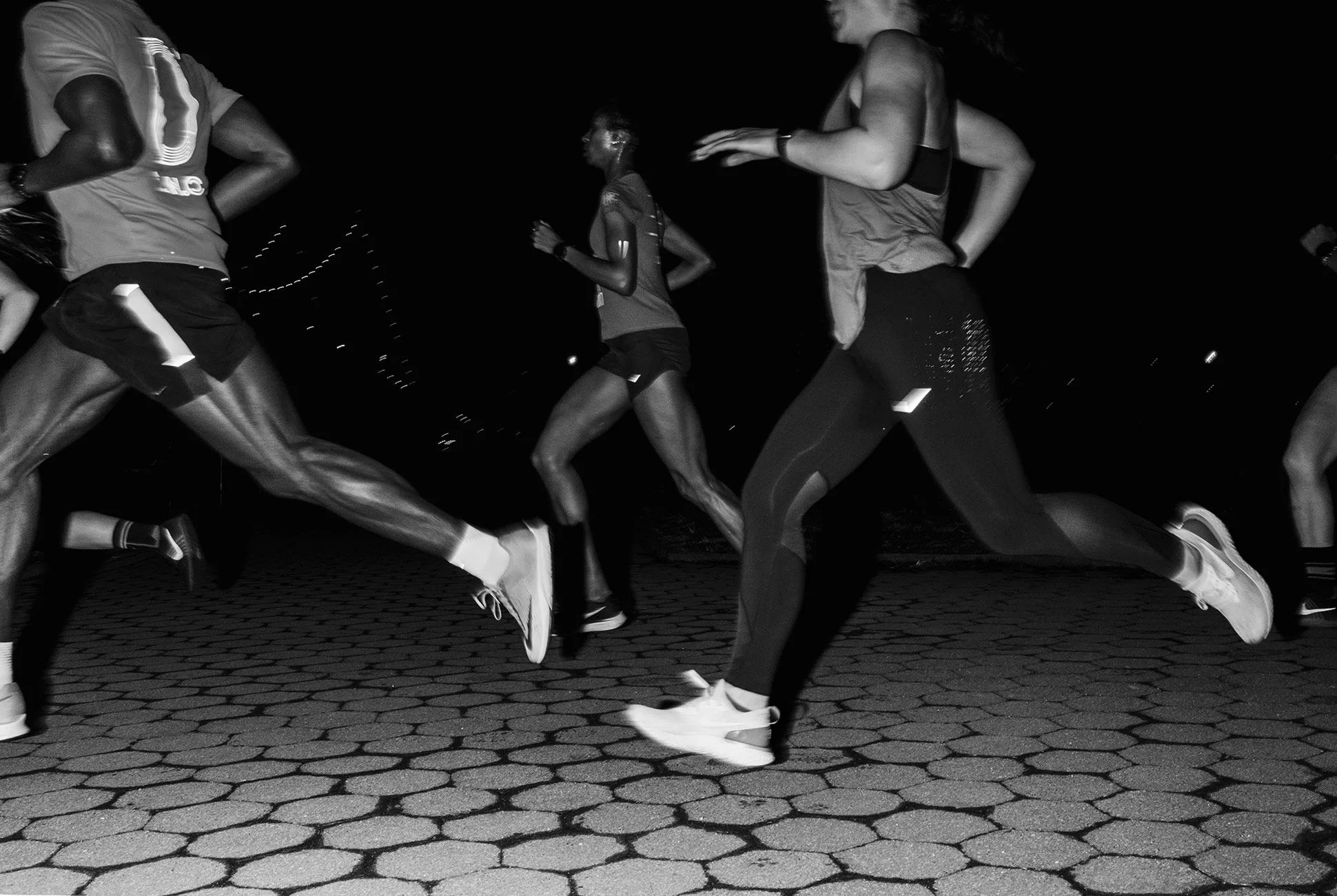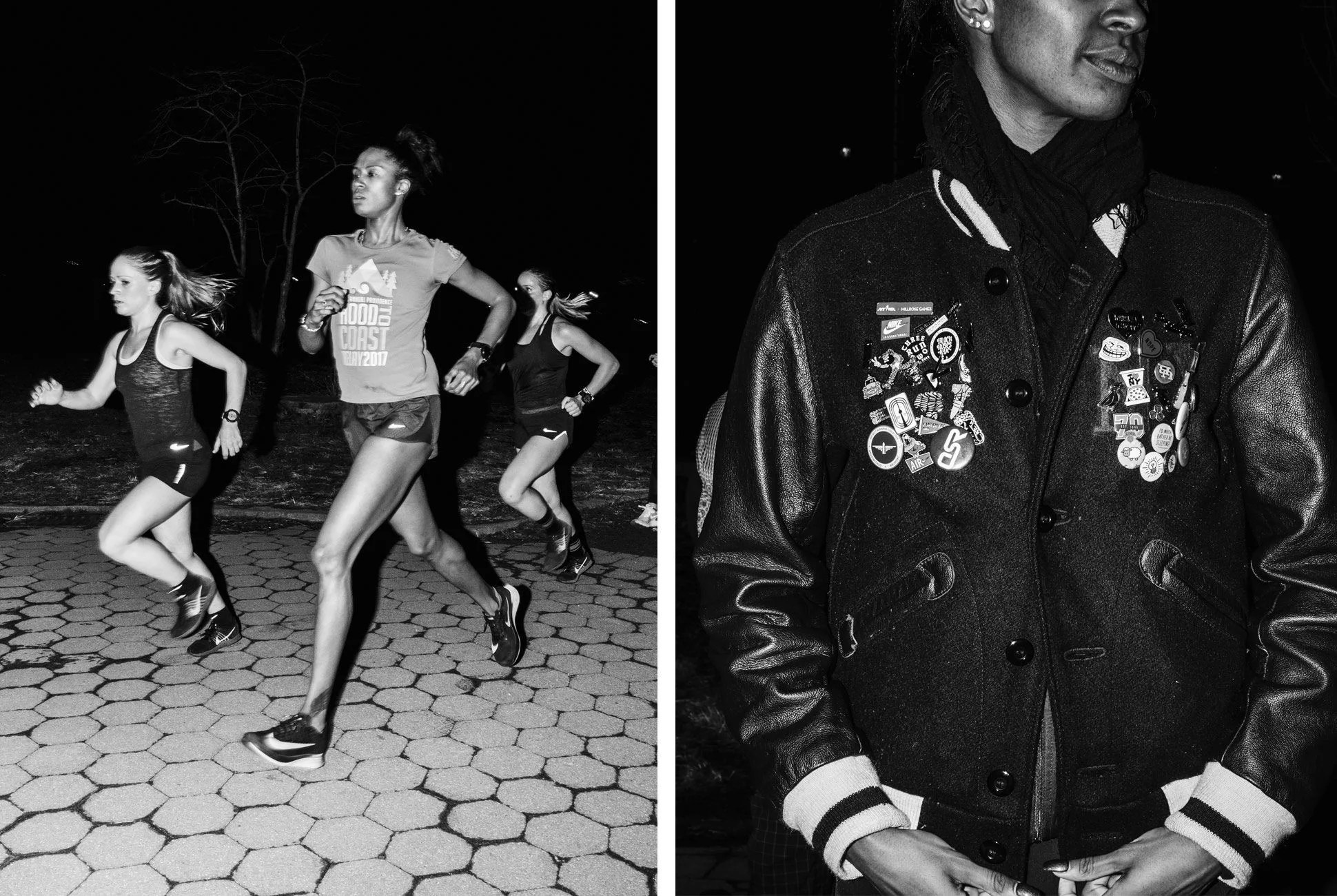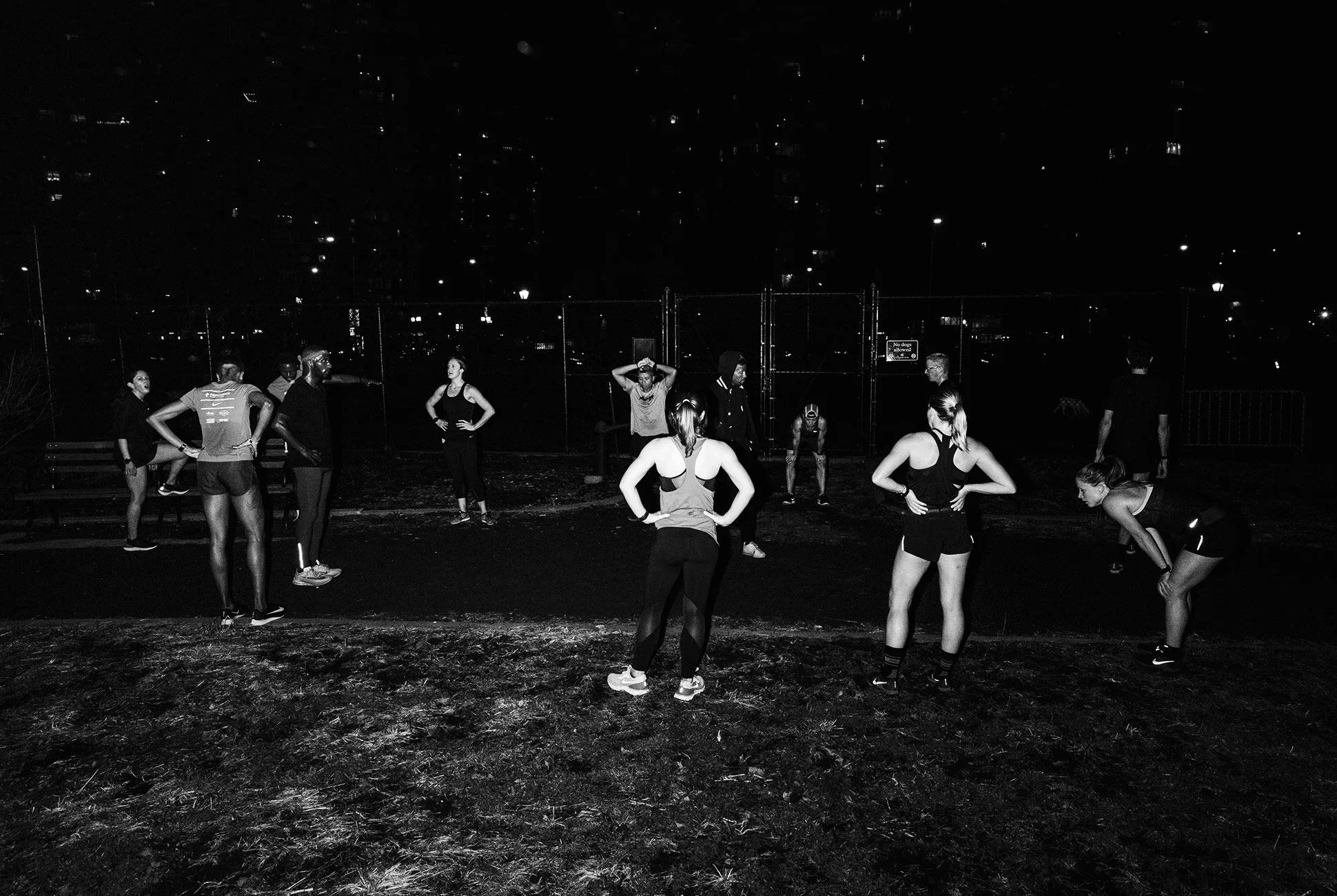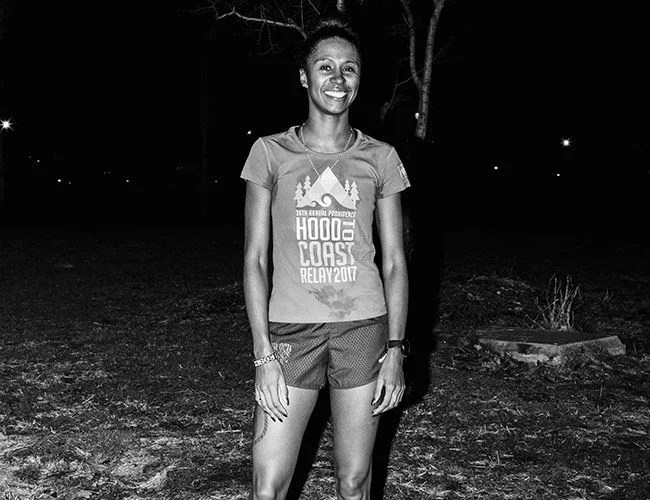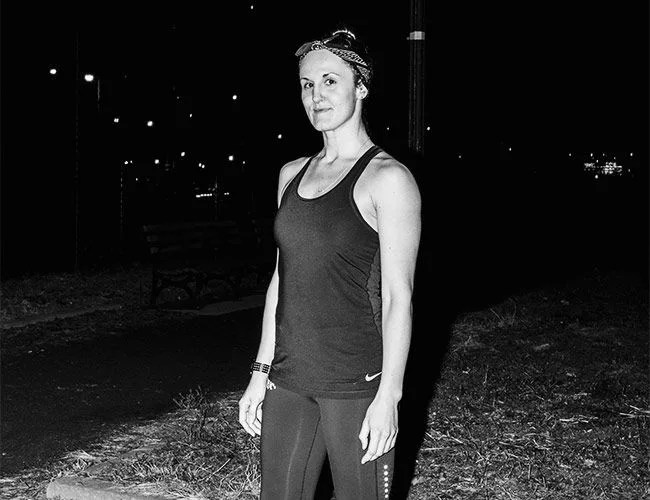11 photos
There are over 50,000 participants in the New York City Marathon every year. The top 100 finishers have their name printed on the front page of the
While you can call Robinson’s trajectory to running success atypical, there are certainly some similarities to running superstars like Mo Farah and Abdi Abdirahman. He started running in high school, then for the first few years of college at Wake Forest, but “I was dead set on becoming a spoken word artist,” says Robinson. So he quit. His success in the music industry rivals his running success — he’s interviewed everyone from Kayne West to Diplo, The Roots to M.I.A. After taking his 20s off for “sex, drugs and hip-hop,” he jokes, “I got back into running after witnessing the birth of my son 14 years ago.”
Robinson quickly jumped back into the game. “I just saw the hobby of running on the margins of my life…and then there was this shift [after the New York City marathon],” Robinson says. “‘This guy’s in the music business and a magazine editor, how did he get 100th?’ People were asking me how do I work out, how did I transfer to the marathon?” Robinson realized there was a need for training information. “I begrudgingly started to share my point of view on basic training.”
Robinson and Jessie Zapo gathered a group of passionate runners and on January 1, 2013, what’s now known as the Black Roses held its first practice. The group enticed both men and women runners, especially those engrossed in New York City’s downtown life. “There were downtown folks that you’d expect, and then everyone from nurses to out-of-work bartenders, and marketing types to DJs,” all evenly split in gender, Robinson says. “It’s a cool and eclectic mix. The curiosity of getting into the mysteries of running and also those passionately interested in New York City street culture. Those two twin pulls were the starting [point], and we’ve gone on from there.”
“Our group is based on men and women training together and doing the same work — working together in a collective effort,” says Robinson.
“[Black Roses] is not a coaching program, it’s about developing yourself as runners and as people,” Robinson says. Therefore, Robinson is not really a coach. He’s a leader, sending texts and emails each week with the training times, but never outlines the actual practice. Yes, each individual has goals, but Black Roses as a group also has goals. Robinson pushes the team to think beyond their own goals and to look at how their group affects the New York City running culture and more broadly, the running culture in general.
